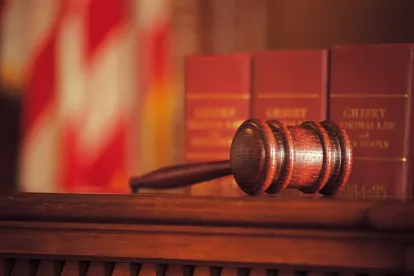In Brazil v. Dole, No. 14-17480 (9th Cir. Sept. 30, 2016), the United States Court of Appeals for the Ninth Circuit affirmed in part and reversed in part three different orders issued by the U.S. District Court for the Northern District of California. In doing so, the Ninth Circuit (1) confirmed that in order to state a false advertising claim under the unlawful prong of California’s Unfair Competition law, a plaintiff must allege that he relied on the purportedly misleading statements, (2) clarified what types of evidence were sufficient to create an issue of material fact sufficient to defeat summary judgment based on the reasonable consumer standard, and (3) confirmed that, in order to certify a damages class under Rule 23(b)(3), a plaintiff must present a damages model that provides a method of calculating damages using proof common to the class.
Plaintiff Chad Brazil brought claims against defendant Dole under California’s Unfair Competition Law (“UCL”), False Advertising Law (“FAL”), and Consumer Legal Remedies Act (“CLRA”). Plaintiff alleged that the labels of ten Dole products were unlawful and misleading because they featured the phrase “All Natural Fruit,” but the products at issue contained ascorbic acid and citric acid, which plaintiff alleged were synthetic ingredients.
The parties engaged in numerous waves of motion practice. Judge Lucy Koh of the Northern District of California issued three orders that were at issue in this appeal. First, Judge Koh dismissed with prejudice plaintiff’s claims for the sale of “illegal products.” Second, as previously reported here, Judge Koh granted Dole’s motion for summary judgment on the ground that no reasonable consumers were likely to be misled by the “All Natural Fruit” label. Third, as previously reported here, Judge Koh decertified a Rule 23(b)(3) damages class because the plaintiff’s damage model failed to satisfy Comcast Corp. v. Behrend, 133 S. Ct. 1426 (2013). Plaintiff appealed all three orders.
The Ninth Circuit affirmed the dismissal of plaintiff’s claims for the sale of “illegal products.” Plaintiff’s “illegal products” theory centered on allegedly deceptive statements that Dole made on its website, which plaintiff had not seen before he purchased the Dole products. Plaintiff argued that because Dole had allegedly made deceptive statements about products on its website, the sale of those products was “unlawful,” and plaintiff had paid for a product that should not have been sold at all. The Court rejected this argument, holding that, since the website statements could not have influenced plaintiff’s purchase, he could not state a claim based on those alleged misrepresentations.
The Ninth Circuit reversed the district court’s order granting Dole summary judgment on plaintiff’s claims. The Court held that the district court incorrectly granted summary judgment to Dole on plaintiff’s UCL, FAL, and CLRA claims because the evidence cited by plaintiff created issues of material fact. The Court noted that the plaintiff had provided several types of evidence, including the labels themselves, plaintiff’s own testimony, Dole’s consumer surveys, and the Food and Drug Administration’s informal guidance as to the definition of “natural.” The Court determined that this evidence could allow triers of fact to conclude both that the “All Natural Fruit” label is misleading to a reasonable consumer, and that the presence of synthetic citric and ascorbic acids renders the products not “natural.”
The Ninth Circuit affirmed the district court’s order decertifying the 23(b)(3) damages class. In so holding, the Court confirmed that the proper measure of damages for plaintiff’s claims was the “price premium” attributable to Dole’s “All Natural Fruit” labels. If plaintiff were to prevail, he could receive only the difference between the price he paid and the value of the fruit he bought. A full refund would only be appropriate if the product purchased was worthless. This analysis did not change even if the Court considered plaintiff’s claim that he was entitled to “nonrestitutionary disgorgement” under an unjust enrichment theory. The Court noted that, even though such an award could theoretically exceed restitution, it did not do so here. The “wrongfully obtained profit” that Dole allegedly received was simply the price premium paid by allegedly misled purchasers.
The Court ultimately held that the district court had not abused its discretion in granting the motion to decertify “[b]ecause Brazil did not explain how this premium could be calculated with proof common to the class.” The Court remanded the case to allow plaintiff to pursue injunctive relief, as well as his individual claim for restitution.
The Ninth Circuit’s opinion in Brazil, though unpublished, provides needed guidance on a variety of issues. Most importantly, the opinion confirms that, in order to certify a damages class under 23(b)(3) (and satisfy Comcast), a plaintiff must explain how damages may be calculated with common proof. Defendants should be reassured by the Court’s continued adherence to this Comcastprinciple.



 />i
/>i
